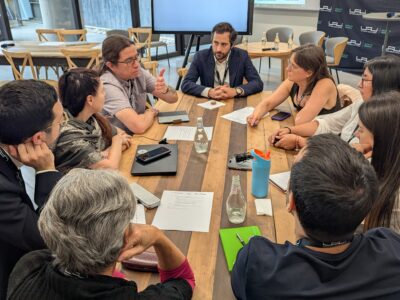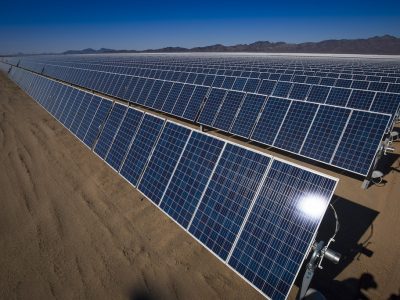Africa in 2050
The continent will face vast challenges. Dealing with them is a global priority.
Take explosive population growth, acute vulnerability to future climate change, and social vulnerability. Stir well and bake.
That’s a recipe for trouble. It’s also Africa in 2050. Overcoming the resulting problems is among humanity’s greatest challenges.
Currently, 490 million Africans live below the extreme poverty level ($2/day per person). The number is rising but the percentage is going down, because the overall population is growing faster than the number of the extremely poor. Still, that’s a large number of people with few if any resources. In Sub-Saharan Africa, according to UNESCO, “only 24% of the population have access to safe drinking water, and 28% have basic sanitation facilities that are not shared with other households.”
Food availability is a problem for many. According to the FAO, “An impending food crisis in Africa is already apparent. There are 2.9 million hunger-related deaths per year . . . .The number of undernourished Africans is rising steeply while the total number of undernourished people worldwide has fallen. At the time of independence, most of sub-Saharan Africa was self-sufficient in food. In less than 40 years, the subcontinent went from being a net exporter of basic food staples to reliance on imports and food aid.
These are by no means insoluble problems, but the challenges are about to get exponentially larger.
The first reason for these exponential challenges is itself exponential: population growth. The World Bank reports that “in sub-Saharan Africa, the population is projected to double by 2050, an expansion of nearly 10 times relative to 1960, from 227 million to 2.2 billion.” We will need to reorient our mental maps of the world: in thirty years, one in four human beings will live in sub-Saharan Africa.
This population growth is all but inevitable. There are some many young people in Africa that when they start families, even if the birthrate declines, there’s still going to be a huge baby boom.
The second reason for the escalating challenge is climate change, which will hit Africa hard. According to the World Meteorological Society, climate change has already begun to have serious impacts: “Climate change is having a growing impact on the African continent, hitting the most vulnerable hardest, and contributing to food insecurity, population displacement and stress on water resources. In recent months we have seen devastating floods, an invasion of desert locusts and now face the looming spectre of drought because of a La Niña event.”
Climate impacts will get worse — how much worse depending in part on how much more coal and oil we burn. The IPCC projects that “Key risks to agriculture include reduced crop productivity associated with heat and drought stress and increased pest damage, disease damage and flood impacts on food system infrastructure, resulting in serious adverse effects on food security and on livelihoods at the regional, national and individual household levels.” Hoover Institution researchers concur that “Africa’s agricultural sector, including livestock, is particularly vulnerable to rainfall change because of the limited ability to control water, poor agricultural research infrastructure, and already low productivity which limits options for adaptation.”
African has improved its record of economic growth in recent decades, which may provide the some of the resources needed to address these problems. Science can also help with improvements in plant breeds. Improvements in governance can also help on things like ensuring that available water gets to the places and people who need it the most. None of this will be easy, however.
On the positive side, Brookings researchers report that “many African countries are now making serious efforts to transition towards low-carbon technologies, low-carbon and resilient infrastructure, and low-carbon tax systems.” Much more can be done, given that, “with an abundance of solar, wind, and geothermal resources, African countries already have a comparative advantage in renewables.”
An increasing fraction of the human race will be living in Africa. They will have to be part of any climate solution, and making their societies more resilient should be a global priority.
Reader Comments
One Reply to “Africa in 2050”
Comments are closed.







CHALLENGE #1: As you say most eloquently Prof. Farber “Climate impacts will get worse — how much worse depending in part on how much more coal and oil we burn” to save the entire human race.
You have just defined the paramount imperative that only intellectuals/academics can produce and implement (because politicians are too corrupt to make the right things happen, indentured by the Military/Industrial/Power of Money complex (per Ike’s 1961 Farewell Address, we were warned far too many times by Ike and historians like the Durants).
Prof. Farber, it is up to you and your worldwide academic colleagues to join together to meet these historically, most destructive challenges of change with the highest priority and urgency or we shall never Adapt in Time and you know that to be true because you taught us that.